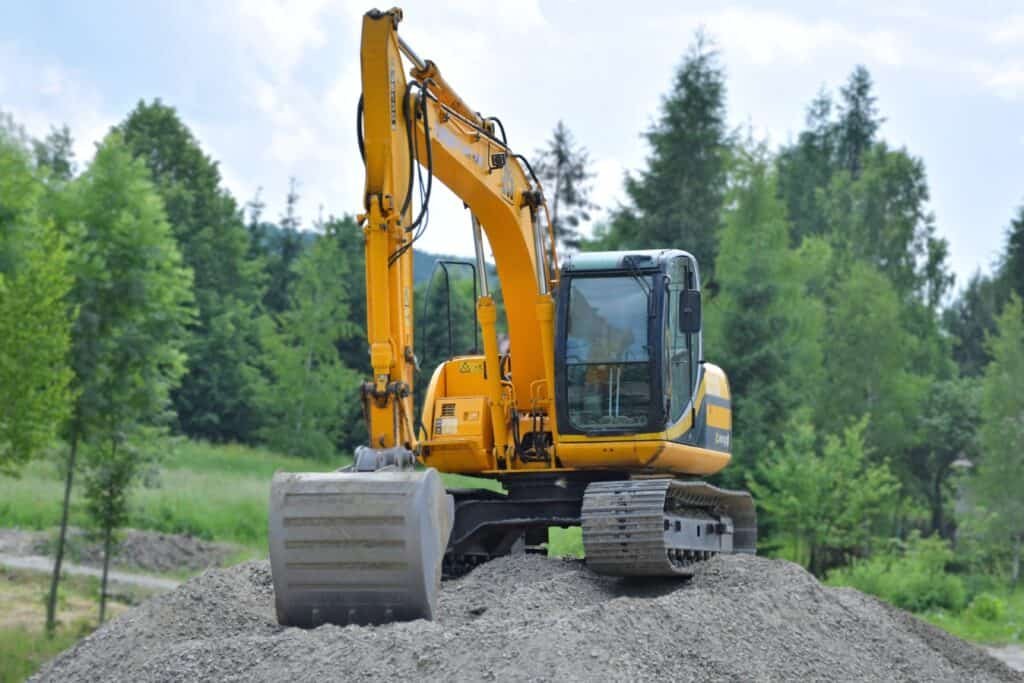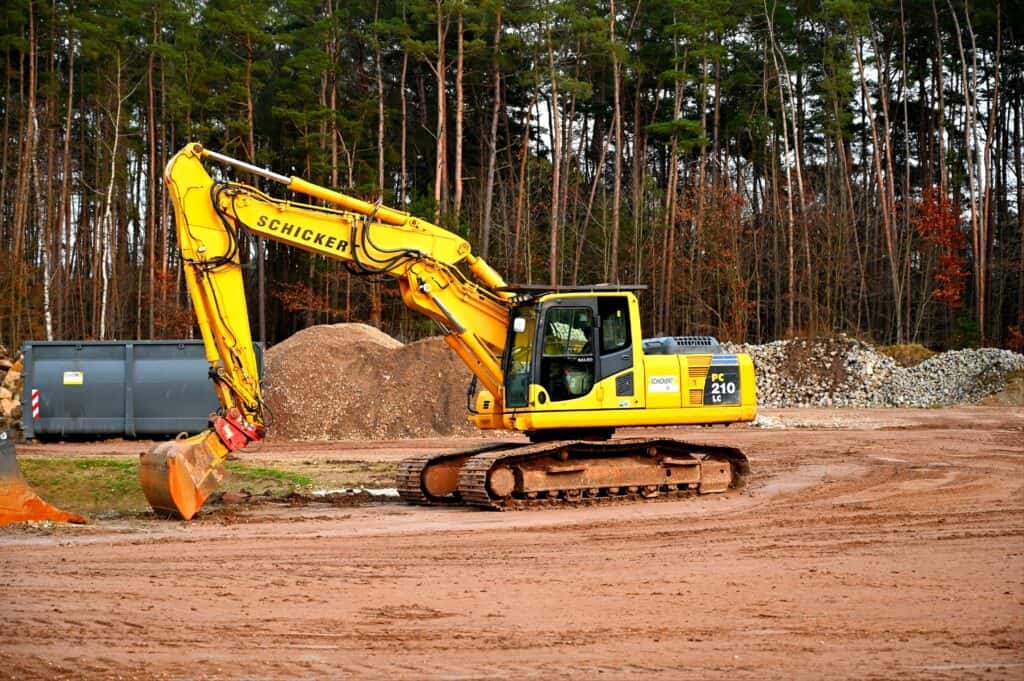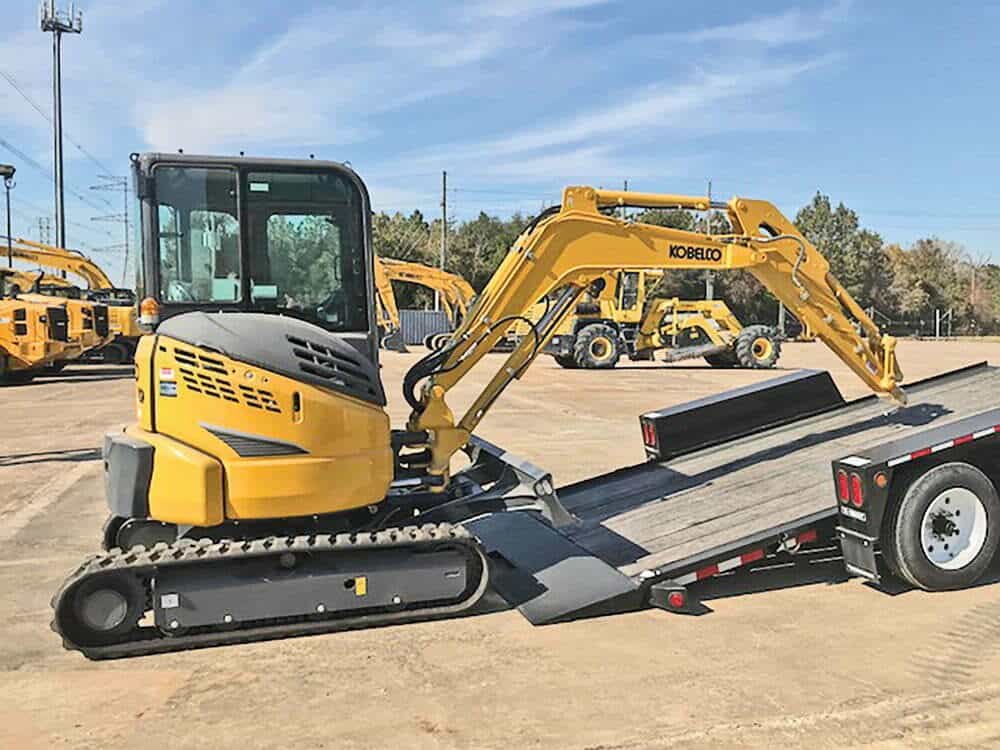Introduction
Excavators are heavy construction equipment used to dig and move large amounts of earth, rock, and other materials. They come in a variety of sizes and types, each with their own unique set of features and capabilities. The crawler or wheeled excavator is an essential part of any construction or infrastructure project, from building roads and bridges to excavating foundations for large buildings.
There are two main types of excavators: crawler excavators and wheel excavators. Tracked excavators move on tracks, while wheeled excavators are mounted on wheels and can move faster on smoother surfaces. Both types of excavators have their advantages and disadvantages, depending on the job to be done.

Together, the different types of excavators available make them versatile and necessary tools in the construction industry. In this article, we’ll explore the factors to consider when choosing between a wheeled or wheeled excavator for your project. By understanding the advantages and disadvantages of each type and the job requirements, operating environment, maneuverability, cost, and maintenance and repair considerations, you can make an informed decision and choose the best excavator for your needs.
Wheel or crawler excavator: what’s the difference?
Excavators are essential machines for a wide range of construction and infrastructure projects. When it comes to choosing the right excavator for the job, there are two main types to consider: crawler excavators and wheel excavators. Although both machines serve the same purpose, there are some significant differences to consider before making a decision.
Excavator chains
Crawler excavators are designed with tracks instead of wheels, giving them superior traction and stability on rough terrain. They are ideal for heavy-duty applications such as foundation digging, demolition work and mining operations. Crawler excavators can work on steep slopes and rough terrain without getting stuck, making them an excellent choice for projects that require a lot of mobility.
Advantages:
- Superior traction and stability on rough terrain
- Able to work on steep slopes and uneven surfaces
- Ideal for heavy duty applications and demolition work
- More comfortable operation for longer periods
Cons:
- Slower top speed
- It can cause further disturbance to the ground
- May require more maintenance due to tracks

Wheel excavator
Wheel excavators, on the other hand, have wheels instead of tracks, making them faster and more maneuverable than their tracked counterparts. They are ideal for jobs that require a lot of movement and can travel quickly between different jobs. They are often used for trenching, landscaping and road work.
Advantages:
- Faster and more maneuverable than crawler excavators
- Able to travel quickly between different jobs
- Ideal for jobs that require a lot of movement
- Less soil disturbance than crawler excavators
Cons:
- Less stable on rough terrain
- Can struggle on steep slopes
- Not as suitable for heavy duty applications as crawler excavators
Both crawler and wheel excavators have their advantages and disadvantages, and ultimately the decision depends on job requirements, operating environment, maneuverability needs, cost, and maintenance requirements. In the next section, we will discuss these factors in more detail to help you make an informed decision when selecting an excavator.

Five factors to consider before selecting a wheeled or wheeled excavator
When choosing an excavator for a job, there are several factors to consider to ensure you choose the right equipment for the job. These factors include job requirements, operating environment, maneuverability, cost, and maintenance and repair.
Job requirements
The type of work you need the excavator for will play a large role in determining whether a wheeled or wheeled excavator is best for the job. Crawler excavators are usually better suited for heavy duty tasks that require more power, such as digging deep trenches, demolition work and mining operations. On the other hand, wheel excavators are better suited for lighter tasks that require more mobility, such as landscaping, road construction and foundation digging.
Operating environment
The operating environment is another important factor to consider when selecting an excavator. If you are working on rough or uneven terrain, such as a construction site, a crawler excavator may be more suitable as they offer better stability and traction. However, if you are working on smoother terrain, such as a paved road, a wheeled excavator may be more efficient as it offers better mobility.
maneuverability
The size and mobility of the excavator will also affect its maneuverability. Crawler excavators are larger and heavier, which makes them less maneuverable than wheel excavators, which tend to be smaller and more agile. If you work in a small space or with limited maneuvering space, a wheeled excavator may be a better choice as it can turn more easily in tight spaces.
cost
Excavator cost is another critical factor to consider when selecting the right equipment for the job. Crawler excavators are generally more expensive than wheel excavators due to their heavy-duty construction and higher horsepower. However, the cost of the equipment will also depend on several other factors, such as the size, model and features of the excavator.
Maintenance and repair
Finally, the maintenance and repair requirements of the excavator must also be considered. Wheeled excavators require more maintenance and repair work due to their heavier construction, while wheeled excavators are usually easier to maintain and repair. Consider the availability of spare parts and the cost of maintenance when selecting an excavator.
By considering these five factors, you can select the right excavator for the job, ensuring you have the equipment you need to complete your project safely and efficiently.

Tips for choosing the right excavator
In addition to the five factors mentioned above, there are several tips that can help you choose the right excavator for your project:
- Research the different types of excavators available in the market to understand their features, capabilities and limitations.
- Consult an experienced excavator operator or construction industry professional to understand the job requirements and operating conditions that will affect your choice of excavator.
- Consider the availability of spare parts, repair services and technical support for the excavator you choose.
- Compare prices and financing options for different types of excavators to find the most cost-effective solution for your project.
- Look for an excavator with advanced features such as GPS and telematics systems that can improve your efficiency and accuracy on the job.
- Invest in proper training of your operators to ensure safe and efficient excavator operation.
If you consider these tips along with the five factors discussed above, you can select the excavator that best suits your project’s requirements, budget and operating environment. Remember that choosing the right excavator can make a significant difference in the success of your construction or infrastructure project.

conclusion
Excavators are essential machines for construction and infrastructure projects, with different types available for specific tasks. When selecting an excavator, several factors must be considered to ensure that the right machine is chosen for the job.
Choosing the right excavator is not just about considering job requirements, operating environment, maneuverability, cost and maintenance needs. The brand of the excavator also plays an important role in determining the quality and reliability of the equipment. When choosing an excavator, it is important to consider factors such as price, features and customer reviews. Comparing the best brands based on these factors can help you make an informed decision and choose the right excavator for your needs.
In conclusion, the job requires careful consideration of several factors, including job requirements, operating environment, maneuverability, cost, and maintenance and repair requirements. By considering these factors, contractors and project managers can ensure that they select the most suitable excavator for their needs. If you want to know more about crawler excavators and wheel excavators or you want to find a reliable supplier for excavators, please contact us.

